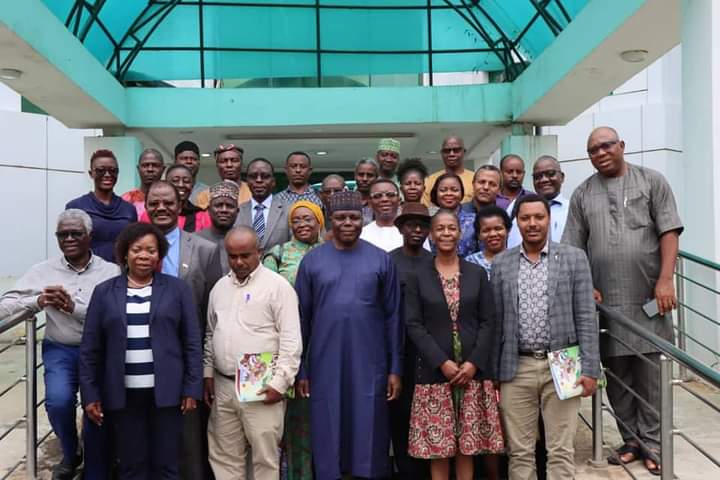Following the successful released of Pod Borer Resistant Cowpea and environmental approval of the pest and drought tolerant Tela Maize last year, the governments of Ethiopia and Mozambique have indicated interest to adopt Nigeria’s biotechnology and biosafety methods to advance their genetically modified crops.
The development followed after biotechnology experts from the two countries visited Nigerian scientists in Abuja to learn from the country’s experience and success of biosafety and biotechnology involved in the development of the breakthrough crops.
The two varieties which was developed by researchers at the Institute for Agricultural Research (IAR) at Ahmadu Bello University, Zaria, offer resistance to pests, tolerate moderate drought and have raised hope for food security in Nigeria.
Director-general, Agricultural Institute of Mozambique, Dr Olga Fafetine said lessons taken from the visit would help Mozambique to have a strong biosafety agency with autonomy and independence of decision.
On his side, president of Biotechnology Society of Ethiopia, Prof Firew Mekbib harped on the need for Africa to develop its own genetically modified technology to address food insecurity in the continent.
Head of policy and regulatory, African Agricultural Technology Foundation (AATF), Dr Francis Nang’ ayo, disclosed that the Tela Maize will attain the next stage of assessment that include variety testing and release before making it available to farmers for cultivation possible by 2023.
According to Nang’ ayo, the genetically modified crops developed with funding from AATF used technology that is founded on objective science and evidence-based, saying the two crops were product of decade of research certified by the National Biosafety Management Agency (NBMA).
The West African representative, AATF, Dr Jean Baptiste, also expressed optimism that biotechnology will be successful in a few years to help farmers achieve productivity, especially in low income farmer families in Africa.
He said, “We are ensuring that the technology can be accessible by our farmers, there are some constraints that limit the dissemination of those technology to our farmers, but we have been trying our best to find solution in addressing some of those constraints”.
Director-general, National Biotechnology Development Agency (NABDA), Prof Abdullahi Mustapha said, “Africa can come together, learn from each other and find a solution that is going to be accepted within the continent and promote our own scientific findings, that is what I find very encouraging, and is something we should do”.
According to him, this will spur us to do more in the area of adopting and releasing some crops to catapult the development of our economy and agriculture.
Also speaking, director-general NBMA, Dr Rufus Ebegba expressed confident that biotechnology will transform the Africa’s agricultural economy as he stressed the need for the continent need to learn from each other to ensure food security.
President of All Farmers Association of Nigeria(AFAN), Arc Kabir Ibrahim said Nigerian farmers are embracing the technology, adding genetically modified crops remain the way to go guarantee food security.





